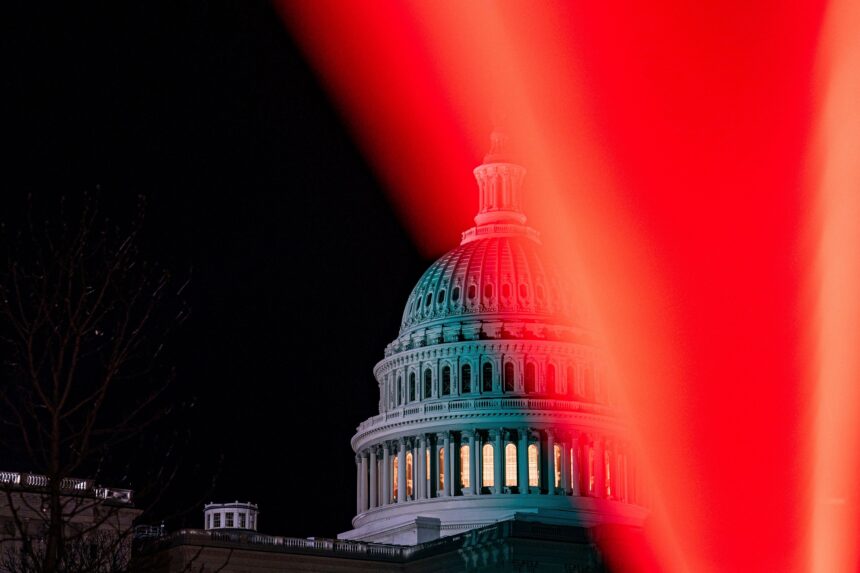Sure! Here’s a detailed and structured article based on the provided content, focusing on the ongoing government shutdown.
Frustration Mounts in Washington Amid Government Shutdown
By Camila DeChalus, Alison Main, CNN
Frustration in Washington, D.C., has reached a boiling point as the government shutdown continues. What began as a standoff over spending priorities related to enhanced Affordable Care Act subsidies has escalated into a significant political test. The shutdown is revealing cracks within party ranks, sparking fiery exchanges across the aisle, and exhibiting growing public impatience with the persistent gridlock on Capitol Hill.
The Latest Updates
In recent statements, top leaders from both parties have signaled a lack of willingness to engage with one another to pass legislation aimed at reopening the government. House Minority Leader Hakeem Jeffries expressed Democrats’ strong opposition to the stopgap bill proposed by Republican leaders. He stated that the bill, while extending current Biden-era spending levels, includes “massive cuts” set in place by former President Donald Trump’s domestic policy, making it unacceptable for Democrats.
Speaker Mike Johnson, addressing the situation, accused Democrats of distracting the public from what he termed a partisan struggle designed to appease their “Marxist rising base.”
Impact on Military Families
The threat of missed paychecks loomed over military families as the shutdown dragged on. Many were left bracing for non-payment until President Trump announced that his administration would access Pentagon funds to ensure troops would receive their paychecks on October 15, should the shutdown last that long. This funding would come from designated research and development money from the Pentagon, which is allocated for two years. Despite this measure, Congress and the White House showed little urgency in reaching a resolution, with members from both parties blaming each other for the ongoing impasse.
Tensions on the House Floor
Tensions within the House of Representatives were palpable last week, clearly demonstrated during an exchange between Republican Rep. Mike Lawler from New York and Democratic Leader Hakeem Jeffries. Lawler attributed the suffering of his constituents to the Democrats’ maneuvers, while Jeffries labeled Lawler’s claims as an embarrassment.
Senate members also expressed discontent, with Senator Brian Schatz publicly chastising House Republicans for not prioritizing their roles during the shutdown. Schatz posed a poignant question: “How is it possible that the party in charge of the government is sitting at home while the government is shut down?” His sentiments were echoed by Arizona Senator Ruben Gallego, who confronted Speaker Johnson over delays in swearing in newly elected Democratic Rep. Adelita Grijalva, which he suggested was a tactical move to delay crucial legislation.
Erosion of Party Unity
Tensions are not just festering between parties; divisions are emerging within the Republican conference itself. Rep. Marjorie Taylor Greene, typically aligned with party leadership, articulated her frustration with both parties. In her view, the current situation is detrimental, and she highlighted a lack of solutions from the GOP to rectify the crisis. Greene’s assertions reflect widespread concern within the Republican ranks that could have repercussions in the upcoming midterm elections.
Moreover, Rep. Kevin Kiley, representing a swing district in California, noted that Republican leadership must consider alternative strategies to reopen the government. He referred to the short-term funding bill as the “lesser of two evils,” indicating a desire for compromise despite disagreements with the Senate leadership.
Looking Ahead
The Senate is anticipated to reconvene next week to deliberate various proposals aimed at ending the government shutdown. Despite growing pressure, no clear path forward has emerged, and it is expected that votes in the House will remain off the agenda through at least Tuesday. When asked about the future, Republican Senator Thom Tillis candidly admitted, “I don’t know. I think it could now go into weeks.”
Senator John Kennedy pointed fingers toward Democratic leadership, asserting that the decision lies significantly with Senator Chuck Schumer and, by extension, Congresswoman Alexandria Ocasio-Cortez, who he claims has considerable influence over Schumer’s actions.
As the shutdown drags on, the consequences are becoming increasingly apparent. Federal workers face layoffs or furloughs, military families deal with the uncertainty of potential missed paychecks, and public sentiment grows more frustrated as government services halt.
This article captures the ongoing dynamics of the government shutdown, providing insights into the perspectives and statements of key figures while summarizing the situation in a structured manner.



